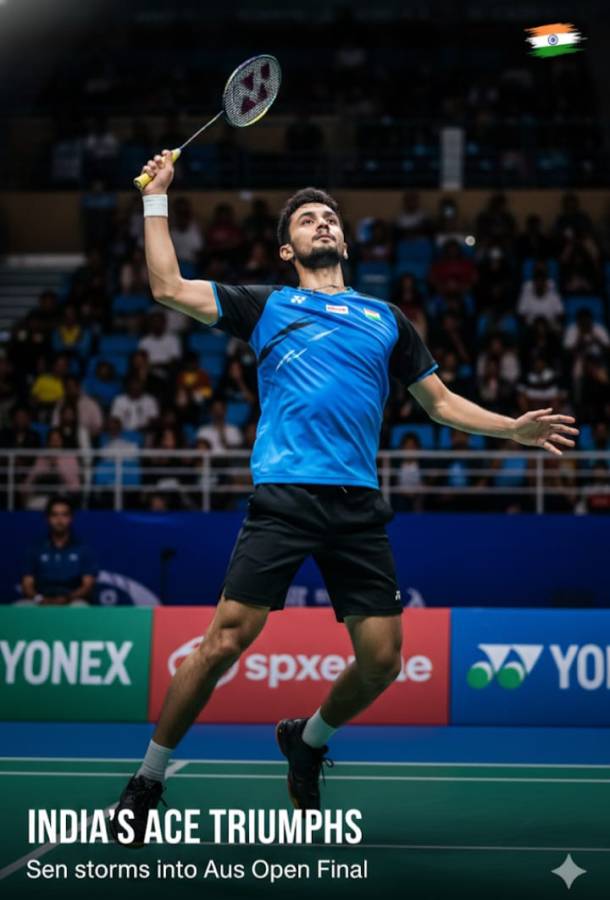
In Australian Open semi-final, where the air itself seemed to vibrate with anticipation, India’s Lakshya Sen performed an 86-minute act of sporting alchemy. His opponent, the seasoned, second-seeded Chou Tien Chen of Chinese Taipei, represented an almost insurmountable wall of tenacity and precision. What unfolded was less a badminton match and more a protracted, three-act drama of willpower, ultimately culminating in Sen’s dramatic victory and his passage into the tournament’s summit clash.
Act I: The Tactical Gambit
The initial exchanges revealed a stark contrast in strategy. Chou Tien Chen, the world number six, commenced with a clinical, almost surgical efficiency. His shots possessed an unnerving accuracy, frequently exploiting the deep court and forcing the young Indian to scramble. Sen appeared momentarily adrift, his signature aggression muted by an uncharacteristic string of misplaced shots and net errors. The Taiwanese veteran capitalised expertly, establishing an early dominance that saw him close out the first game, 21-17. The scoreboard, a blunt instrument of consequence, suggested a challenging afternoon lay ahead for the Indian hopeful, casting a pall of apprehension over his supporters.
Act II: The Crucible of Character
The second game, however, became the narrative’s pivotal turning point. Having ceded the tactical advantage, Sen chose instead to anchor himself to sheer resilience. The momentum, initially a firmly grasped commodity for Chou, began to erode under the relentless pressure of Sen’s renewed vigour. The Indian shuttler elevated his defensive game to a masterful art, transforming seemingly irretrievable shots into rally-sustaining returns. This shift culminated in a breathtaking passage of play where Sen stared down three consecutive match points. Each point saved was a declaration, a thunderous refusal to surrender the court. At 20-all, the tension was palpable; the air crackled with the potential energy of a single misstep. Sen, displaying the kind of mental fortitude that defines elite athletes, managed to edge the second game 24-22, extinguishing the immediate threat and levelling the contest in a monumental display of nerve.
Act III: Ascendancy and Resolution
The resolution of the second game served not just as a tie-breaker, but as a complete psychological transfer of power. Having survived the brink, Sen entered the decider with an undeniable psychological advantage, a warrior emboldened by a near-death experience. Chou Tien Chen, visibly drained by the extended duration and the crushing weight of lost opportunities, began to falter. The consistent errors that had plagued Sen earlier now afflicted the Taiwanese star.
Sen dictated the rhythm with newfound authority, leveraging his court speed and injecting lethal precision into his cross-court smashes. He established a commanding 11-6 lead at the mid-game interval, a cushion that felt far wider than the five-point difference suggested. The latter half of the final game was a testament to Sen’s clinical closing prowess. He maintained an unwavering focus, pushing his opponent further into uncomfortable positions until, finally, a decisive error from Chou sealed the 21-16 victory.
The marathon contest concluded after one hour and twenty-six minutes, a prodigious effort of endurance and mental tenacity. By vanquishing the second seed in such an emphatic reversal of fortune, Lakshya Sen has not merely earned a spot in the final; he has affirmed his capacity to prevail under the most severe duress. He now stands ready to contest the coveted Super 500 title, a resurgent force whose dramatic semi-final performance will undoubtedly be recounted as one of the tournament's enduring masterpieces.





















